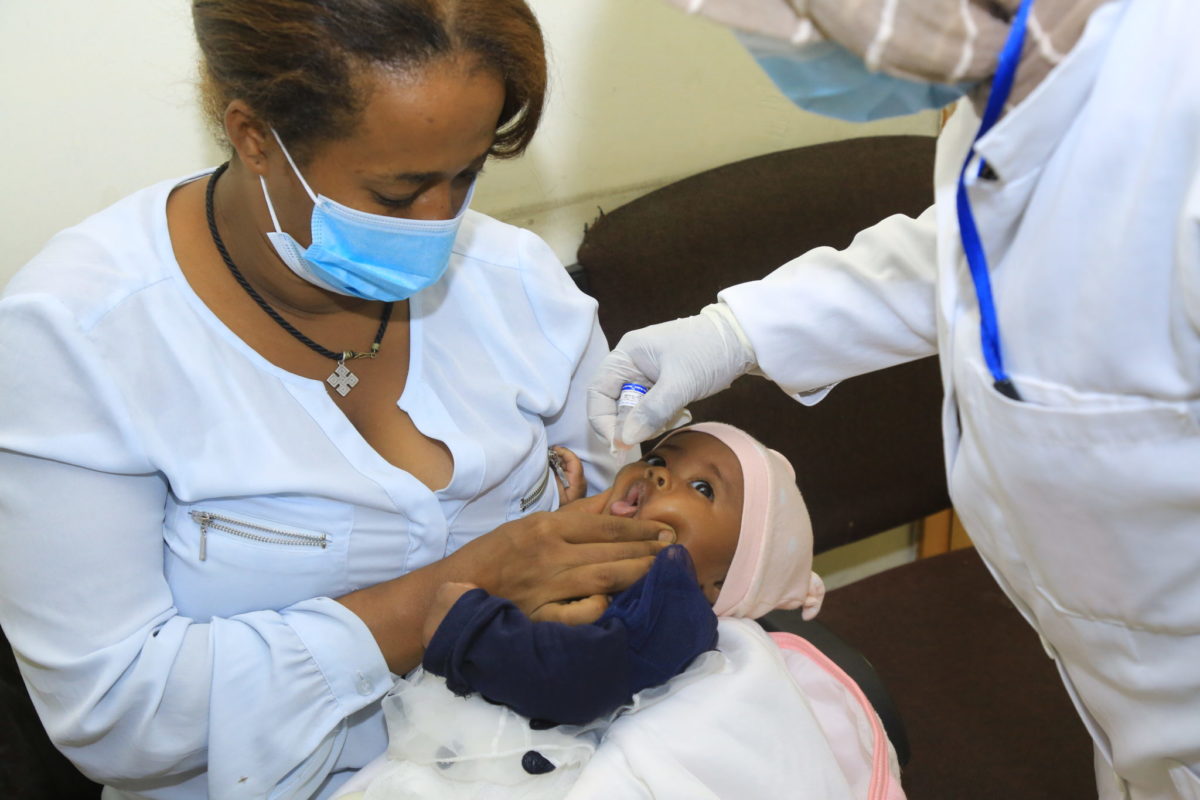The Looming Threat of Malnutrition in the COVID-19 Pandemic
Co-hosted by 1,000 Days, Bread for the World and InterAction, The Looming Threat of Malnutrition in the COVID-19 Pandemic, brought together five speakers from different fields including government, the nutrition community and documentary film, to share their perspectives on how COVID-19 has impacted health and nutrition for women, children, and families globally. The overwhelming consensus: the time to act on addressing dramatically increasing rates of severe malnutrition around the world is now.
The picture is staggering. In many parts of the world, malnutrition related to the pandemic is projected to kill more people, especially children, than the pandemic itself because of COVID-19-related disruptions to food and health systems. Recent estimates show that by 2022, these disruptions could leave an additional 12 million children severely malnourished.
Investing in nutrition can’t wait.
Highlights from the virtual briefing moderated by Jenny Marron, Director of Public Policy and Government Relations at InterAction:
Congressman Jim McGovern, co-chair of the House Hunger Caucus, spoke to the importance of investing in nutrition now not later so that we do not lose progress. A strong nutrition advocate, McGovern laid out in urgent terms what is at stake: “We know that each day we fail to focus on the threat of malnutrition, that means another child will grow up stunted, a mother will give birth to a malnourished baby…and a family and a community will have a diminished future.” He followed by explaining we know what needs to be done to combat malnutrition and food security and that investments in the health of women and children are in the best interest of us all. View his remarks here.
Skye Fitzgerald, Emmy and Oscar nominated documentary filmmaker, discussed his film Hunger Ward which chronicles the famine in Yemen. He provided a view of what severe malnutrition looks like in the world right now. Watch a clip from his film here.
Karin Lapping, Nutrition Technical Director at FHI Solutions, outlined the causes of malnutrition and the proven solutions we have to save women and children. She explained that poor nutrition affects every aspect of a person’s life, especially in three main areas: education, health, and economics. But we have the solutions, like the protection and promotion of breastfeeding, which is an extremely successful intervention that saves lives, and is easily scalable. Her concluding remarks were straight to the point: “Bottom line, we have to act now. Children are dying and this will continue to happen. It is an ethical, economic, and human remit. We must reinvigorate efforts towards nutrition. The cost is too high not to.”
Asma Lateef, Director at Bread for the World Institute, highlighted the history of U.S. leadership on nutrition and the need for that to continue by saying: “We know that when the U.S. leads, other donors and partners follow. That is crucial.”
Shawn K Baker, Chief Nutritionist at USAID, provided closing remarks, emphasizing that, while malnutrition is a major threat to the health and wellbeing of many children around the world, it is a problem for which there are numerous, cost-effective solutions. Additionally, if mothers, infants and young children have access to quality nutrition in the 1,000-day window, he emphasized, “we have locked in their ability to survive and to thrive, and that is irreversible.” The United States has demonstrated consistent commitment to ending the crisis of maternal and child malnutrition, even amidst the challenges posed by the coronavirus pandemic, and this leadership is crucial in ensuring the U.S., other partner governments, civil society and the private sector can work together and mobilize resources to have the greatest possible impact. Continued U.S. leadership is critical in improving the nutrition of mothers, infants, and young children— “we know it’s possible, we know it saves lives, and we know it ensures their future.”
Urgent investment in proven, cost-effective, and scalable nutrition solutions is necessary to address the crisis of maternal and child malnutrition and end preventable child deaths. The time to act is now.
Find a recording of the full event here. And for more, read our brief on severe malnutrition and COVID here.

